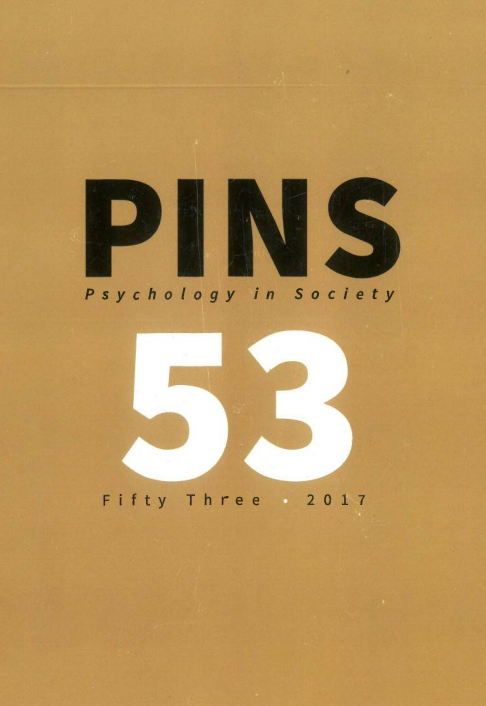Writing outside history: Reification, agency and the discourse on identity and difference
DOI:
https://doi.org/10.17159/2309-8708/2017/n53a1Keywords:
political identity, agency, ontology, social change, decolonization, reification, metapsychologyAbstract
The recent debates about the transformation, or decolonization, of higher education in South Africa have underscored the continuing salience of “identity” in
post-apartheid political discourse. Disillusioned with the token equality of liberal politics, student-led movements now demand that their manifestos be granted legitimacy precisely on particularistic grounds. With the aim of understanding what conception of social change these demands entail, this archival study analyzes how political identity and agency have been constructed in contemporary South African academic discourse. More specifically, this study identifies the different kinds of ontological and epistemological presuppositions that particular uses of language are necessarily committed to, and therefore necessarily limited by (both politically and conceptually). Utilizing Scopus, a bibliographic database, the five most relevant and highly cited articles were selected and subsequently analyzed using the logical rules governing both predicate ascription and presupposition. Two main uses of language were isolated based on common sets of presuppositions: 1) A non-human ontology of agents, and 2) Agency as a property of antecedently given identities. Each use of language was found to comprise two further subcategories respectively: 1.1) Psychological agencies, 1.2) External agencies; and 2.1) Realist view of political identity, 2.2) Constructivist view of political identity. The results of the data analysis suggest that the two main uses of language are mutually reinforcing. Taken together, they appear to entail an account of social change that, via the linguistic obfuscation and reification of human agency, is in fact immanent to the existing socio-political order itself. It is suggested that future research on political identity and agency will require a trans-disciplinary approach concerned with explaining manifest social antagonisms (e.g. class oppression; institutional racism; Islamophobia) in terms of the global historical and material conditions within which they are located.
Downloads
Downloads
Published
How to Cite
Issue
Section
License
This journal is an open access journal, and the authors' and journal should be properly acknowledged, when works are cited.
Authors may use the publishers version for teaching purposes, in books, theses, dissertations, conferences and conference papers.
A copy of the authors’ publishers version may also be hosted on the following websites:
- Non-commercial personal homepage or blog.
- Institutional webpage.
- Authors Institutional Repository.
The following notice should accompany such a posting on the website: “This is an electronic version of an article published in PINS, Volume XXX, number XXX, pages XXX–XXX”, DOI. Authors should also supply a hyperlink to the original paper or indicate where the original paper (http://www.journals.ac.za/index.php/pins) may be found.
Authors publishers version, affiliated with the Stellenbosch University will be automatically deposited in the University’s’ Institutional Repository SUNScholar.
Articles as a whole, may not be re-published with another journal.
The copyright of the article(s) lies with the author(s).
The copyright of the journal lies with PINS-psychology in Society.
The following license applies:
Attribution CC BY-NC-ND 4.0 - https://creativecommons.org/licenses/by-nc-nd/4.0/

